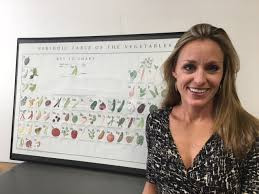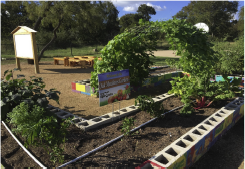Dr. Jaimie Davis is the Faculty Spotlight for this month. Jaimie N. Davis, PhD, RD is an Associate Professor at The University of Texas at Austin. She is a Registered Dietitian and received her PhD in Nutritional Sciences. She currently serves as the Graduate School Committee Chair and Associate Chair of the Department of Nutritional Sciences at UT-Austin. Over the past 20 years, her research has focused on designing and implementing dietary and exercise interventions to reduce obesity, metabolic syndrome and type 2 diabetes risk factors in youth and adults. She has over 90 peer-reviewed articles that address the effects of behaviors (both dietary and physical activity behaviors) and how changes in these behaviors impact and mediate changes in adiposity, type 2 diabetes, and cardiometabolic disease risk factors. She has been well funded by NIH and other foundations for over two decades to conduct research in the areas of childhood obesity. Her most recent study was a large school-based cluster randomized controlled gardening, nutrition, and cooking trial to prevent and treat childhood obesity and type 2 diabetes risk factors in primarily Hispanic children and their families.
Texas Sprouts
TX Sprouts was a program developed by Dr. Davis to observe if implementing gardens in schools could reinforce and encourage students to pick up healthy eating habits. As students grow and plant their own things, the goal is that they would take the knowledge that they have learned at school and bring it home and educate their families on how to eat healthy in a sustainable manner. School gardens have become a common health promotion strategy to encourage sustainable long term healthy eating habits. This program came to be because Dr. Davis observed that childhood obesity was becoming more and more prevalent, and on average she observed that roughly 30-50 percent of overweight kids screened have pre-diabetes. This statistic was shocking as childhood obesity could lead to other metabolic diseases associated with child obesity. She wanted to take action to help these students take preventative measures.
The Research & Results
The Research
The research project spanned over the course of 3 years and is funded by the National Institutes of Health. The project consisted of 8 low-income elementary schools in the Austin area. The students ranged from 3rd-5th graders. The schools were split up into an intervention group and control group. A garden was designed and planted in each of the intervention schools and a committee called the Garden Leadership Committee (GLCs) was formed to train and teach 18 in-school lessons and 9 parent lessons throughout the school year.
The Results
There were many positive outcomes to having gardens planted in these schools. It was noted that after intervention, schools were able to increase their vegetable intake to almost 3 servings a day. The glucose control improved, while the LDL cholesterol decreased in intervention schools. The benefits did not stop there, it also poured over into the classroom. Academic performance in intervention schools also increased, as the ability to focus on lessons at schools increased by 12%, and students were able to achieve higher TEA scores and STAAR Tests for the intervention year.
Dr. Davis is also a professor of our 100% online Masters of Nutritional Science Program. Hear what she has to say about the program.
Click here to read in detail of Dr. Davis' Abstract on Texas Sprouts














